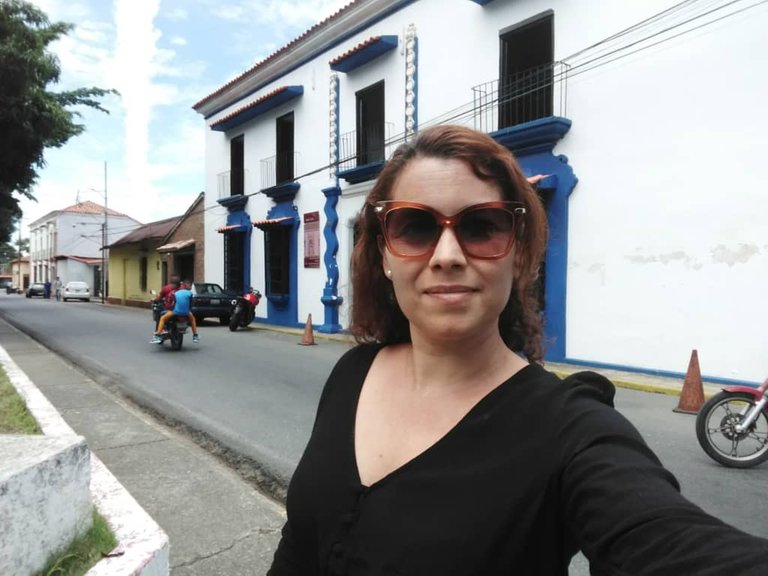
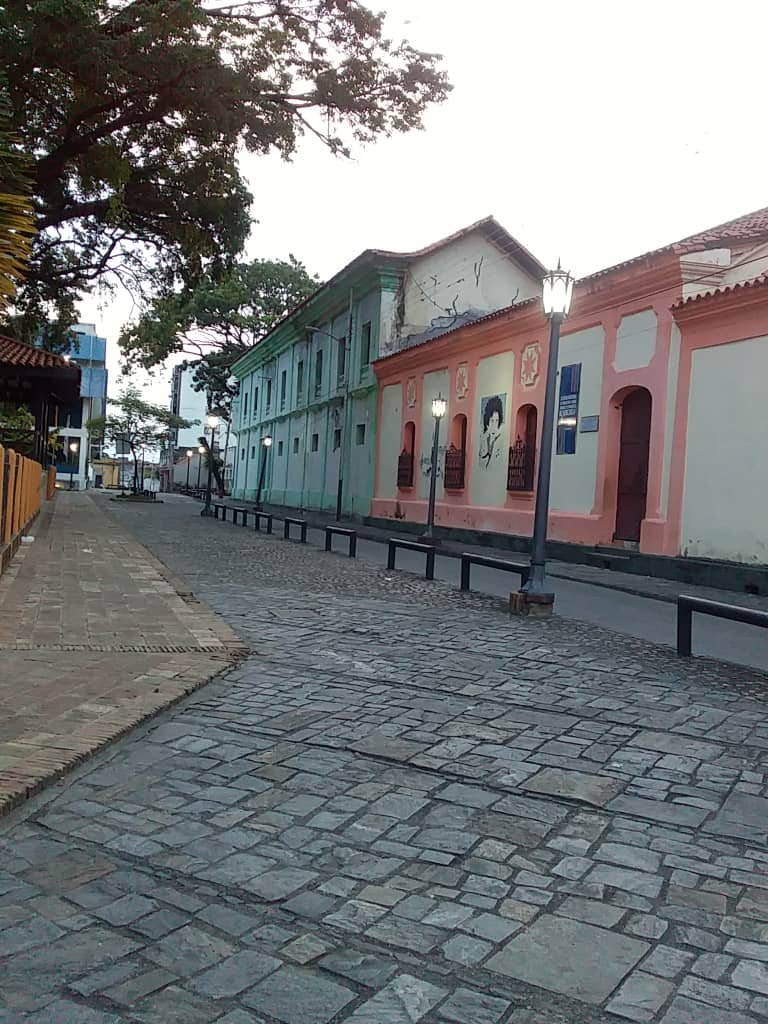
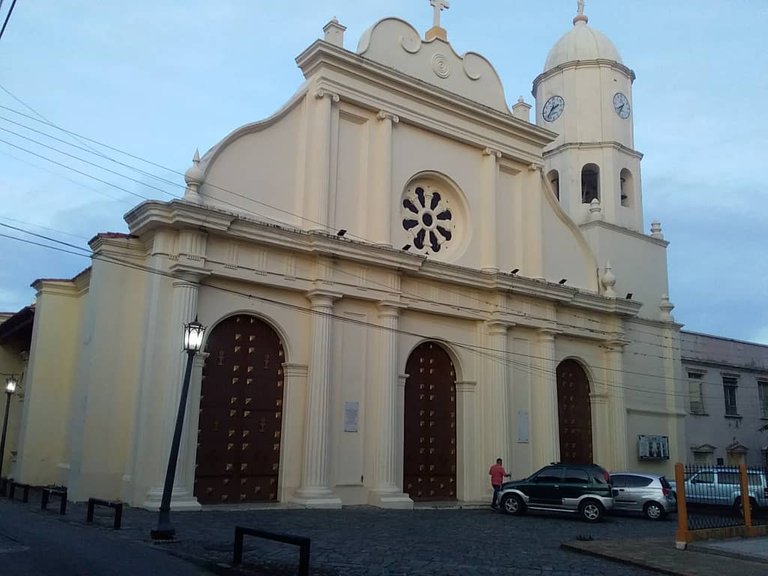
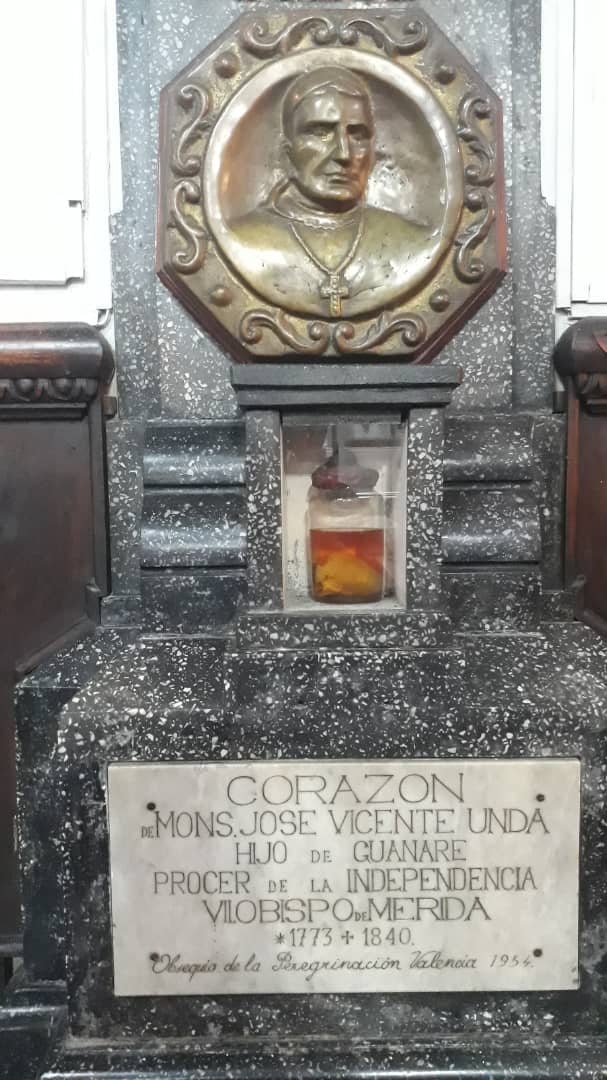
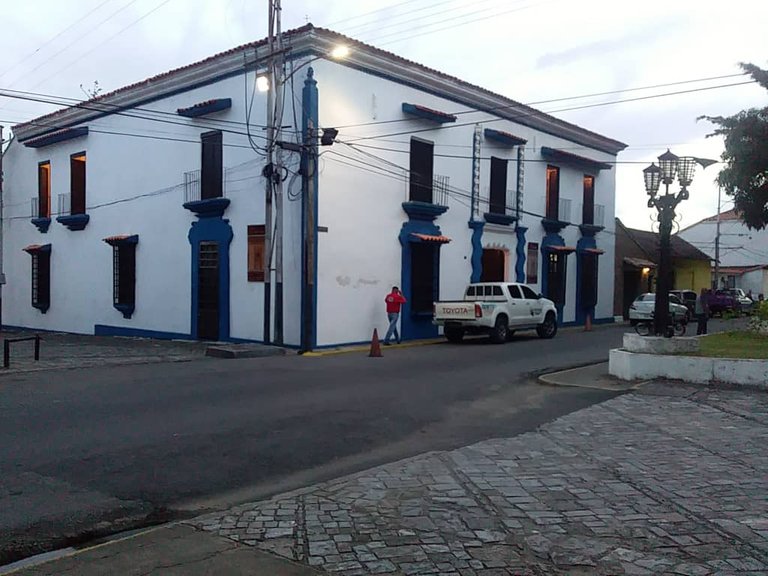
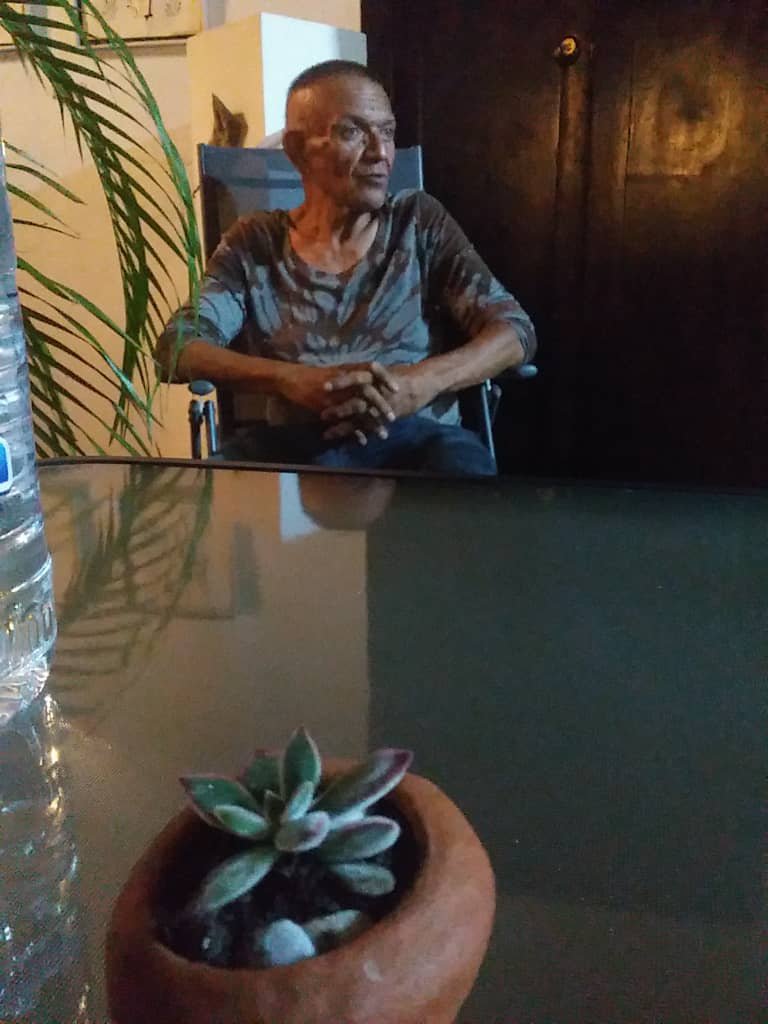
Photos: archivo personal
ENGLISH
A few days ago I visited the city of Guanare, capital of the state of Portuguesa, located at the gateway to the Venezuelan plains.
Guanare is a warm city, founded in 1591 by the Portuguese captain Juan Fernandez de Leon.
Its architecture corresponds to the constructions of the XVI century dating from the colonial and independence period and represents a fusion of European and indigenous architecture, built with materials from the same environment: wood, clay, palm and stones.
Over the years, most of these buildings were displaced by "modern" buildings that generated an architectural rupture of the place, however, the cathedral, built in 1710, is still preserved. It was affected by the earthquake of 1782 and was completely restored in 1807.
In its interior is preserved the heart of Monsignor José Vicente de Unda, precursor of the independence, died in 1840. It was his will that once on his deathbed, his heart was taken to the city of Guanare. It was thus decided to keep it inside the Basilica Nuestra Señora de la Coromoto.
Another place that is preserved in Guanare and that today serves as the headquarters of the Academic Vice Rectorate of the UNELLEZ is the house where the first educational institution in Venezuela was located. It was created by decree of the government of Gran Colombia on May 16, 1825, later renamed José Vicente de Unda High School. The chronicler of Guanare, Eddy Ferrer Duque, says that it was Monsignor Vicente de Unda who recommended to the liberator to convert this house into a school. He was personally in charge of finding the most educated people of the time to teach Latin grammar, Spanish grammar, rudiments of philosophy and first letters.
Another beautiful place that Guanare has is La Casa Coima, it was the headquarters of the Guipuzcona Company, as Guanare was a city with very fertile lands and of great economic potential for the cultivation of cocoa, coffee and tobacco, the company showed a deep interest in the region and decided to establish a headquarters in the city.
Later, the house became the headquarters of the Tobacco Tobacconist, it also served as the headquarters of the first printing press of Gunaare, public authorities and personalities of the time, in 2012 it was restored by regional authorities and today it is the headquarters of the Portuguesa Tourism Corporation.
Walking through the city I met a curious character named Emilio. An assiduous reader, who spends his nights in a square reading, although he lives alone, for him the book is a way of keeping company.
The first night, while waiting for the arrival of the electric service, I went with some friends to the plaza and Emilio came to talk with us. For three hours he went through classics of literature and philosophy: Plato, Heraclitus, Eric From, Briceño Guerrero, Siddhartha, Dante.... I was surprised that a character like him, in the middle of such a small town, was universal. This made me think of the idea that who reads travels, although Emilio told us that he had lived in Carcas and Valencia and had studied law, I understood that he was a man who had traveled to many places. The world was within his reach because every time he opened a book the world was there, open, waiting for him.
SPANISH
Hace unos días visité la ciudad de Guanare, capital del estado Portuguesa ubicada en la puerta de llano venezolano.
Guanare es una ciudad calurosa, fundada en 1591 por el capitán portugués Juan Fernández de León.
Su arquitectura corresponde a las construcciones del siglo XVI que datan de la época colonial y de independencia y representa una fusión de la arquitectura europea e indígena, construida con materiales del mismo ambiente: madera, barro cocido, palma y piedras.
Con los años, la mayor parte de estas construcciones fueron desplazadas por edificios “modernos” que generaron una ruptura arquitectónica del lugar, sin embargo, todavía se conservan su catedral, construida en 1710. Ésta fue afectada por el terremoto de 1782 y se restauró totalmente 1807.
En su interior se conserva el corazón del Monseñor José Vicente de Unda, precursor de la independencia, quien murió en 1840. Fue su voluntad que una vez en el lecho de muerte, su corazón fuese llevado a la ciudad de Guanare. Por esta razón, se conserva en el interior de la Basilica Nuestra Señora de la Coromoto.
Otra lugar que se conserva en Guanare y que hoy sirve como sede del Vicerrectorado Académico de la UNELLEZ es la casa donde funcionó la primera institución educativa de Venezuela. Fue creada por decreto del gobierno de la Gran Colombia el 16 de mayo de 1825, posteriormente pasó a llamarse liceo José Vicente de Unda. Dice el cronista de Guanare, Eddy Ferrer Duque, que fue Monseñor Vicente de Unda quien recomendó al libertador convertir esta casa en un colegio. Se encargó personalmente de buscar las personas más estudiadas de la época para que impartieran clases de gramática latina, gramática castellana, rudimentos de filosofía y primeras letras.
Otro lugar hermoso que tiene Guanare es La Casa Coima, fue sede de la Compañía Guipuzcoana. Como Guanare era una ciudad con tierras muy fértiles y de gran potencial económico por la siembra del cacao, café y tabaco, la compañía mostró un profundo interés en la región y decidió establecer una sede en la ciudad.
Posteriormente, la casa pasó a ser sede del Estanco del Tabaco, también funcionó como sede de la primera imprenta de Guanare, de poderes públicos y de personalidades de la época, en el año 2012 fue restaurada por autoridades regionales y hoy es la sede de la Corporación de Turismo de Portuguesa.
Caminando por la ciudad conocí un curioso personaje llamado Emilio. Un lector asiduo, que pasa las noches en una plaza leyendo, aunque vive solo, para él el libro es una forma de estar acompañado.
La primera noche, a la espera de la llegada del servicio eléctrico, fui con unos amigos a la plaza y Emilio se acercó a conversar con nosotros. Durante tres horas se paseó por clásicos de la literatura y la filosofía: Platón, Heráclito, Eric From, Briceño Guerrero, Siddhartha, Dante... Me sorprendió que un personaje como él, en medio de un pueblo tan pequeño, fuera universal. Esto me hizo pensar en la idea aquella de quien lee viaja, aunque Emilio, nos contó haber vivido en Carcas y Valencia y haber cursado estudios de derecho, comprendí que era un hombre que había viajado a muchos lugares. El mundo estaba a su alcance porque cada vez que abría un libro el mundo estaba allí, abierto, esperándolo.
I truly appreciate you sharing your recent visit to Guanare. It sounds like a fascinating city with a rich history and a blend of architectural influences. The fact that Guanare was founded in 1591 by Juan Fernandez de Leon, a Portuguese captain, adds an interesting historical dimension to the city. The architectural style of the buildings, reflecting the colonial and independence periods, showcases a unique fusion of European and indigenous influences. It's unfortunate that many of these structures have been replaced by more modern buildings over the years, causing a shift in the architectural landscape. However, it's uplifting to know that the cathedral, dating back to 1710, has been preserved despite the challenges it faced, including the restoration after the earthquake in 1782. Preserving historical landmarks like the cathedral is essential in maintaining the cultural heritage of a place. Thank you for sharing this glimpse into Guanare's architectural history, and I hope you continue to explore and appreciate the unique charm of different cities in your future travels!
hello, it is very unfortunate that the architecture of the place has not been preserved, however, through the little that remains we can appreciate a historical moment of what happened in that city, thank you very much for your comment... greetings.
Congratulations @vielsiarias! You have completed the following achievement on the Hive blockchain And have been rewarded with New badge(s)
Your next target is to reach 200 upvotes.
You can view your badges on your board and compare yourself to others in the Ranking
If you no longer want to receive notifications, reply to this comment with the word
STOPTo support your work, I also upvoted your post!
Check out our last posts:
I have never been to Guanare. I hope someday to return to Venezuela and be able to visit all the beautiful cities that our country has. There is so much to discover. Thanks for sharing these photos, best regards!
te invito a visitar Guanare, sobretodo sus pueblos, saludos, gracias por el comentario